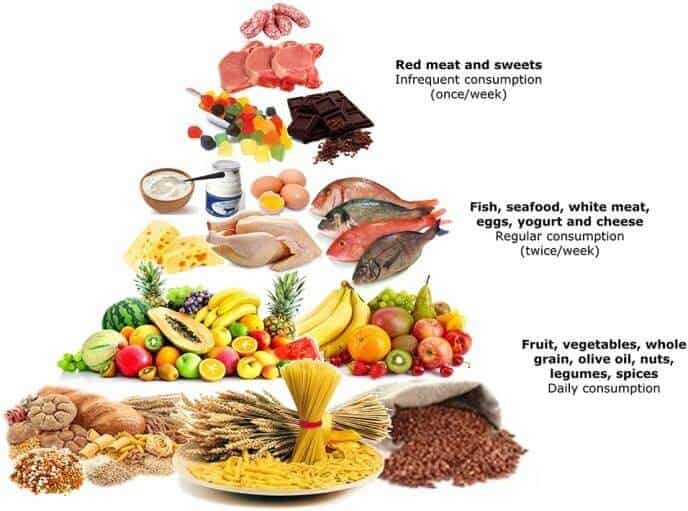When you make the decision to go through IVF to try for a baby, you have to accept there are many things out of your control and that success is not guaranteed. According to the NHS website, between 2014 and 2016 the percentage of IVF treatments that resulted in a live birth was: 29% for women under 35, 23% for women aged 35 to 37, 15% for women aged 38 to 39 and 9% for women aged 40 to 42.
Having said that, one of the things which you can control when trying to conceive through IVF is your diet and lifestyle. While making changes to this aspect of your life does not guarantee success, it is generally agreed among doctors in the industry that it can help increase your odds.
Why should I follow an IVF diet plan?
Having a healthy diet is always important, but especially during the IVF process because of the strong relationship between your health and the health of your eggs. There are a lot of factors that contribute to the success of IVF treatment, and diet is one of the few that you can control. Following a specific diet plan and maintaining a healthy lifestyle can optimise fertility and strengthen your chances of IVF success. You want to focus on balanced, nutritious meals, but you also don’t want to make any major changes during this time. A diet plan helps guide you when you’re choosing which foods to eat so that you know you are eating nutrient-rich foods that will support your fertility goals.
Mediterranean IVF Diet Plan
Loads of good information can be found online around fertility, but there is also plenty of misinformation. If you have searched around on the subject of diet and fertility before, you might have seen a lot of information regarding having a ‘Mediterranean diet’ and the benefits that are associated with it. A Mediterranean diet is not a restrictive diet, it is simply a lifestyle based on the traditional foods and healthy living habits of people from countries like Greece, Italy and Spain. The MedDiet is simple yet varied and allows you to have flexibility in what you eat, based on your preferences. Because it involves the consumption of foods that are high in essential nutrients, like healthy fats and lots of vitamins, it is often recommended to women trying to conceive to increase their chances of getting pregnant.
Does the Mediterranean diet work?
The first question is how reliable is this information? Well, there have actually been clinical studies in both men and women which have measured the effects of having a MedDiet (Mediterranean diet), on fertility and the results are eye-opening.
In men, a study concluded, “Greater adherence to the MedDiet, as assessed through the validated Mediterranean diet score (MedDietScore), was significantly associated with higher sperm concentration, total sperm count and sperm motility.”
In women, a study concluded, “Greater adherence to the MedDiet, defined using the validated Mediterranean diet score (MedDietScore), was associated with a higher likelihood of achieving clinical pregnancy and live birth among non-obese women <35 years of age.”
These studies involved a good number of participants and the results were fairly conclusive.
What does a MedDiet consist of?
The basis of a Mediterranean diet is fresh food such as fruit, vegetables, whole grains, nuts, spices, legumes and olive oil. Extra virgin olive oil has the added benefit of being rich in healthy fats and helping to absorb fat-soluble vitamins. The focus of this diet is on whole, single-ingredient foods, rather than processed foods.
You should supplement these foods with seafood, white meat, eggs, cheese and yoghurt a couple of times a week. The MedDiet is relatively low in animal foods, but it is recommended that you eat fish at least twice a week because it is high in protein and healthy omega-3 fatty acids — essential nutrients for pre-conception health. Furthermore, you should look to be eating red meat only once a week at most.
Best foods to eat for fertility
The Mediterranean diet is recommended by many fertility nutritionists because it includes so many of the foods that are known to boost fertility. Some of the best foods to help your chances of conception include:
- Tomatoes – cooked tomatoes contain lycopene, an antioxidant that can improve sperm morphology
- Olive oil – increased intake of olive oil has been shown to improve sperm quality
- Sunflower seeds – high in vitamin E, shown to boost sperm count and sperm motility, as well as omega 6 fatty acids
- Fish – the omega 3s in fish have been shown to have a positive effect on ovulation and healthy progesterone production
- Oysters – oysters are rich in fertility-boosting nutrients and often hailed as the best fertility food
- Walnuts – walnuts contain high amounts of both omega-3 and omega-6 fatty acids that support fertility
Foods to avoid in your IVF diet plan:
- Fizzy drinks, ice cream, refined sugar
- High GI carbohydrates eg: potatoes, white bread, rice
- Trans fats – these are found in margarine and baked foods (e.g. cakes and pies)
- Processed meat e.g. sausages
- Highly processed foods e.g. ready meals
Use Impryl before an IVF cycle
The chances of success in IVF are improving as we learn more and technology advances. However, the odds are still not in favour of those about to go through it. One proven way to boost your chances is to try and stick to a Mediterranean diet and give your body the best possible chance to conceive.
Impryl is made up of activated micronutrients which are found in a Mediterranean diet and can help optimise your egg or sperm cells. There are also clinical trials that show a greater chance of success for sub-fertile couples to get pregnant when taking Impryl. This is why we recommend that both men and women supplement their diet with Impryl before they go through an IVF cycle.
Start your journey with Impryl today
The fertility supplement for both men and women
Diet plan authored by PCOS supplement provider, Fertility Family.









